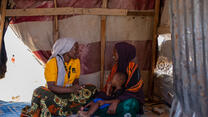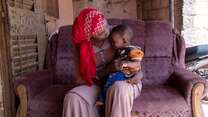Nearly 80 million people are displaced worldwide, the majority of whom are making their way to cities. Cities are beacons of economic opportunity. However, opportunities are frequently out of reach for refugees, and other vulnerable residents in these cities. As a result, urban refugees struggle to find sustainable livelihoods and achieve long-term self-reliance. At the same time, programs to support them lack investment and evidence to show what works.
For the past five years, the International Rescue Committee (IRC) and the IKEA Foundation have been solving this challenge through the Re:BUiLD (Refugees in East Africa: Boosting Urban Innovations for Livelihoods Development) program. In partnership with the IKEA Foundation, Re:BUiLD brings together the International Rescue Committee (IRC), the Center for Global Development (CGD), Open Capital (OCA), Kampala Capital City Authority (KCCA) and Nairobi City County Government (NCCG). Re:BUiLD is committed to generate and share evidence for innovative, sustainable livelihood solutions that can be adopted to support refugees and host residents in other cities in East Africa and beyond.
This working paper “Cash and Small Business Groups for Ugandans and Refugees” explores the impact of cash grants and mentorships on vulnerable groups. Constraints that inhibit small business growth are potentially amplified for groups with limited access to existing business networks like refugees and women. Programs that facilitate intergroup contact, in addition to capital, could potentially raise welfare, especially if incentives are aligned for participants to share information and invest effort in each other's outcomes.
In this working paper, we find that grants substantially improve business outcomes for men, women, refugees, and hosts. Combining mentorship with cash has an additional positive effect for refugee men, but a negative effect relative to cash alone for women who run higher-profit businesses. Mentors with higher baseline profits significantly improve mentees' business outcomes, while differences across group gender and nationality compositions are small. The shared fate addition worsens early outcomes in aligned groups but does not affect mixed groups.


